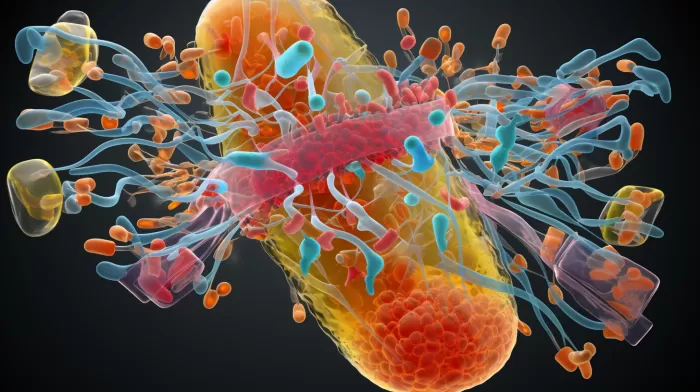Healthy digestion plays a crucial role in maintaining overall health, and enzymes are essential in making sure that the process occurs effectively. They not only aid in the digestion and absorption of food nutrients but also help protect against aging, chronic illness, infections, stress, and fatigue.
What are enzymes and how do they work?
Enzymes are specialized proteins that catalyze vital chemical reactions throughout the body. Their unique molecular configuration and electric charge enable them to cause specific chemical reactions to occur, much like a puzzle piece that fits perfectly into place.
There are over 4,000 biochemical reactions that occur in the human body thanks to enzymes. These include the enzymatic action that breaks down food in the mouth, stomach, and intestinal tract, as well as the actions that help nutrients cross into cells and enable intracellular organelles to function like microscopic factory machinery.
Enzymes and coenzymes
Many enzymes require a coenzyme or a cofactor to activate them. These can be inorganic metal ions (like zinc) or other organic compounds such as flavin, heme, biotin, or adenosine tri-phosphate (ATP). Coenzymes like the B vitamins riboflavin, thiamine, and folic acid transport chemical groups from one enzyme to another. An important coenzyme called nicotinamide adenine dinucleotide hydride (NADH) is used in approximately 700 different known enzymatic reactions.
However, certain molecules in the environment can negatively affect enzyme function. Many prescription drugs inhibit enzymatic action while aiming to kill a pathogen or correct a metabolic dysfunction. Additionally, enzyme inhibitors can include herbicides, pesticides, and the natural poisons that animals and plants produce for protection.
Digestive enzymes
The most important enzymes are the digestive ones. Proteases break down proteins, lipases break down fats, amylase and ptyalin break down carbohydrates, and sucrases, maltases, and lactases break down simple sugars into glucose.
Enzyme supplements
Although the body already has enzymes, enzyme supplements can be beneficial. Health relies on an efficient digestive tract, and an unhealthy diet can inhibit healthy physiological reactions and restrict enzyme and stomach acid production. This can lead to decreased digestion and absorption of nutrients, accelerated aging, and increased susceptibility to chronic illnesses, infections, stress, and fatigue.
Digestive enzyme supplements can be particularly important for those whose diet is not as healthy as it should be or who are transitioning to a higher raw food intake. Taking such supplements for several months can eventually allow the digestive tract to heal and encourage the production of digestive enzymes by the mouth, stomach, and pancreas. This can lead to increased energy and improvements in overall health.
For those who suffer from dyspepsia, a stomach acid disorder, taking digestive enzymes along with natural stomach acid supplementation can provide relief. It’s also essential to monitor stress levels and eliminate highly sugary, spicy, or greasy foods to further reduce discomfort.
Proteolytic enzymes are another type of enzyme supplement that can be used in high doses as part of specific cancer therapy protocols, such as the Kelley-Gonzales method.
Conclusion
Enzymes play a vital role in maintaining health by ensuring healthy digestion and providing protection against various health issues. Ensuring adequate enzyme supply, whether through diet or supplementation, can lead to better overall health, increased energy, and a reduced likelihood of chronic illness.



